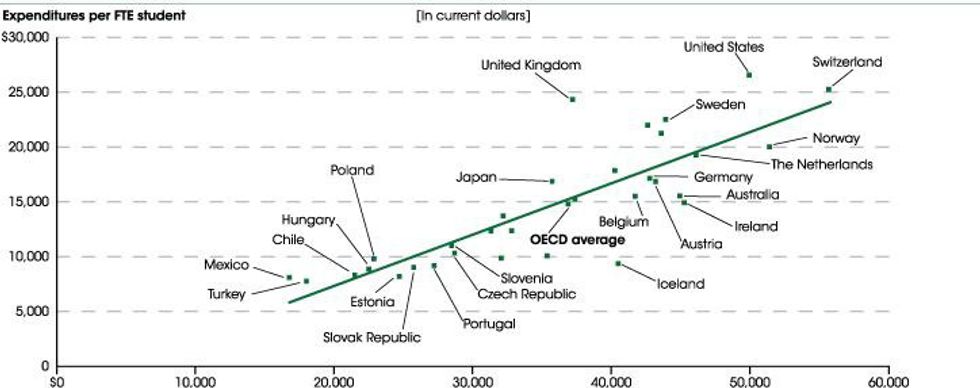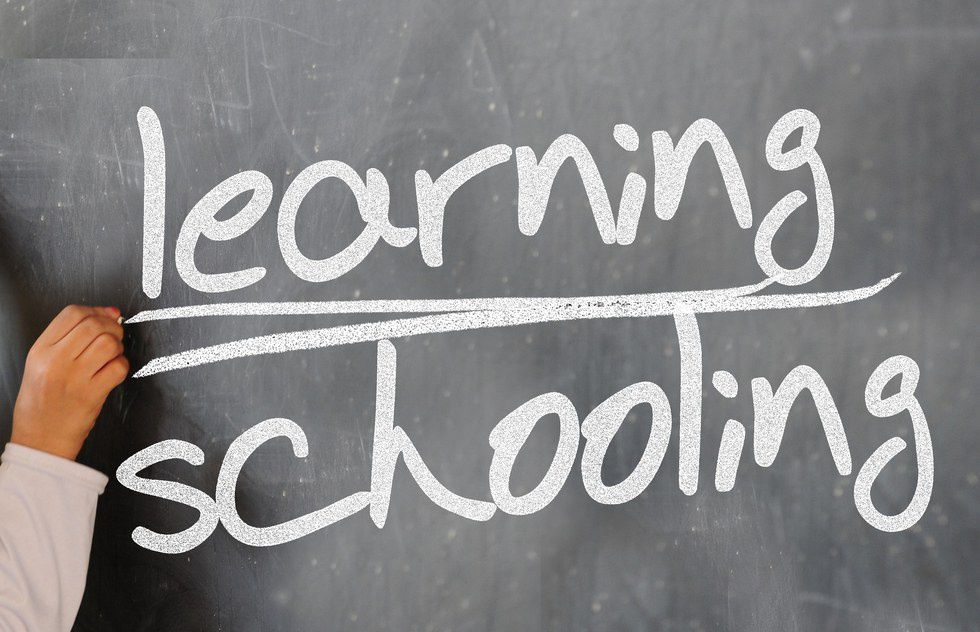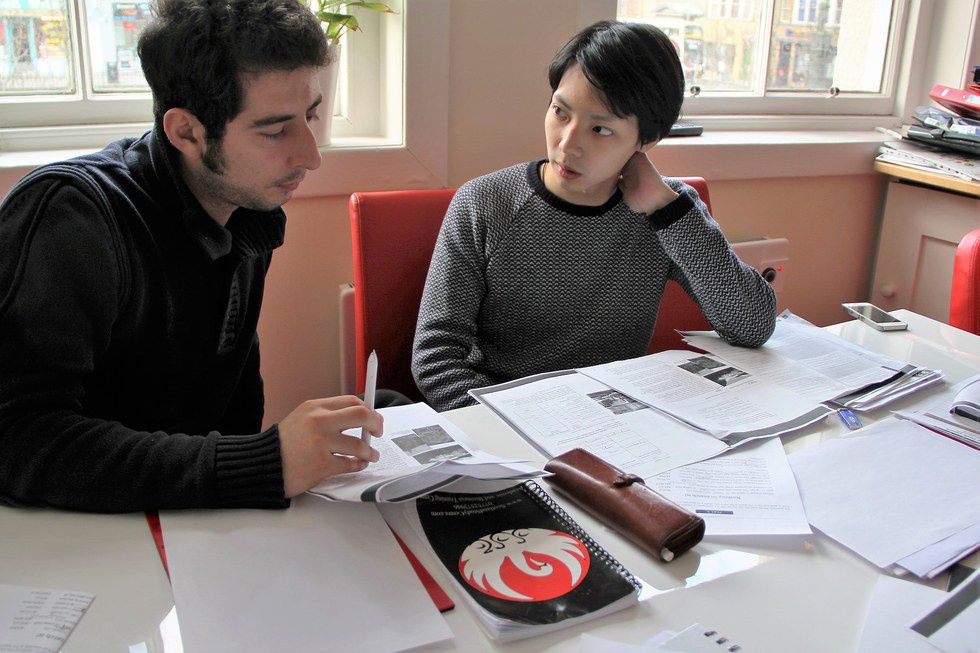Many of us remember the dreaded day when we began our journey through America's public education system. In the traditional public school system, a student spends nearly a decade attending classes five days a week. Even after those hard years the journey usually isn't over and college awaits. So where does our education system leave us and how does it compare to the education systems in other developed nations? Well, not surprisingly, our public education leaves much to be desired, and much to be learned...
America all together spends about 620 billion every year on public education, this equals out to about $12,300 per student. Despite spending substantially more than the average amount (the OECD average is under $9,000/student) America only ranked 14th out of 40 countries when evaluated by Pearson, which compiles results from a series of global datasets such as literacy, graduation rates, PISA, TIMSS, and PIRLS. According to the Program for International Student Assessment (PISA), our math literacy is also worse than the OECD average (481 compared to 494), 29 countries have better scores than the US in math. 19 countries have better reading literacy, and 22 have better science literacy.
Which countries scored highest? According to Pearson's data compilation the top ten were; South Korea, Japan, Singapore, Hong Kong, Finland, UK, Canada, Netherlands, Ireland, and Poland. All of which spend less on their education per student than the U.S. Given the amount of money and time put into the American education system, it seems there are many ways in which we fall short when compared to other developed countries. And it's no big surprise to most students who often feel frustrated and lost in their studies.
Here are some of the possible flaws in our education system:
1. Unnecessary focus on natural aptitude.
In the U.S. our standardized tests focus heavily on a students' natural ability to understand and comprehend advanced topics and equations, when students do poorly they are often considered "less able" and are doomed to be placed in classes and curriculums that forego their true potential to learn. In many other countries (Finland and China notably) students are given fewer tests and nearly every child learns even the more advanced math and reading skills.
2. Poor retention of previously learned information
When tested by the Program for the International Assessment of Adult Competencies, the US scored worse than most in proficiency levels of problem-solving, numeracy and literacy. 20% of adults (ages 15-65) were below the lowest level in problem-solving which involves using communication tools, evaluating information and performing practical tasks. We also scored worse than the UK, Korea, Canada, Japan and many others when it came to numeracy, the ability to use and interpret mathematical information.
3. Teaching is not as socially valued as it could be.
In many other countries teaching in the public education system is considered an honorable and respectable profession. In Finland, teachers are revered at a similar level as doctors or lawyers and are chosen from the top 10% of their class. The average salary for teachers in the US ($41,460) is also lower than in Japan ($45,930), Korea ($47,340), Finland ($42,810), Ireland ($47,300) and many other countries such as Switzerland ($68,820). The Global Teacher Status Index gave the U.S. a teacher status of 38.4, Singapore had 46.3, South Korea got 62.0 and China got an outstanding 100. These scores were based on surveys asking how pupils respected teachers.
And for the good news....
It is getting better, slowly but steadily. Coursework is changing slowly to include more practical and relevant knowledge such as classes on environmental science, a subject the U.S. scores higher than most countries in. Also, teachers are receiving more training on understanding the social and emotional needs of students which should help them to reach out and inspire their students. Finally, American students do have decent rates of graduating high school, and now many more are heading off to college than before.
Our education system has many shortcomings and room for improvements, but with some hope and hard work, our future students can continue to grow smarter and more adjusted to the life ahead of them.

























